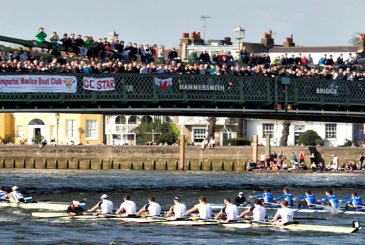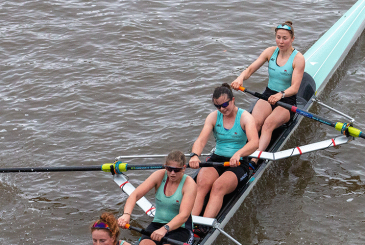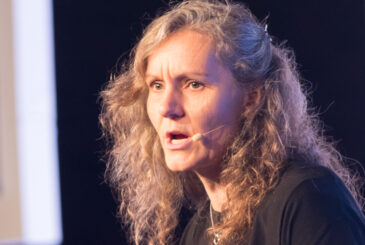GB rower Beccy Muzerie explores the link between our mind and body before race day
Racing is back! It has been a long time coming, but so worth the wait for that unique experience of pushing your body to its limits alongside five other boats, all hungry to reach the finish line first. And it’s a curious mental battle of internal versus external focus.
Ultimately, a rowing race is who can get physically from A to B the fastest. But we all know that having people racing alongside us can somehow help us go faster. For me, the trick is using the external information of the speed of crews around me, and to respond internally by checking in with how I am rowing and seeing if I can be a tiny bit faster. It’s a mental game as much as a physical one.
The link between our minds and bodies never ceases to amaze me, and there are not many clearer reminders of this than waking up on the morning of a race day. Without having to do anything my body is already getting itself ready; stomach churning over, numerous toilet trips, heart thudding before I have even hit the water. I can’t say I particularly enjoy feeling this way, but I know I don’t need to try and change it. Over the years I have learnt not to fear, but to embrace the physical symptoms of my nerves. It means that I care, and I am ready.
My mind also likes to play tricks when it comes to race day. Most of the time in training I am able to focus solely on what I am doing, feeling the run of the boat, thinking about technical changes, listening to feedback from the cox and coach. But when it comes to race day, my mind fills with unhelpful and irrelevant thoughts. I don’t know why my brain thinks that is the appropriate moment to start planning my next holiday and predicting what might happen next in whatever Netflix series I am binging. The barrage of obscure thoughts took me by surprise on my first race back after COVID. But in those moments, I have learnt to remind myself of the two technical points I had given myself to check in with during the race, and focusing on them meant the other thoughts drifted away.
“Especially this year, there are so many unknowns and things outside of our control, and all we can do is give our best physical and mental effort to each stroke”
I often find myself trying to explain to non-rowers the strangeness of sitting on a start line. The eerie silence that fills the air as you sit side-by-side with your competitors, waiting for boat names to be called and the lights to turn from red to green. There are small sounds – the tapping of bow pair blades to keep you straight, the slapping of thighs to keep them warm, quiet whispers of final words between crew mates, people emptying water bottles, checking gates are tight, but on the whole you are just sitting there, alone with your thoughts of what is about to come.
Here I tend to allow my mind to drift a little, sometimes joking with the stakeboat holder about the colour of my nails, or marvelling at the beauty of the lake I am sitting upon. It keeps me calm. I also pray the same prayer – that each athlete in the race will be able to row to the best of our ability. And when the starter calls out our names, I breathe deep and tune into how the handle feels in my hands and how the footplate feels on the soles of my feet.
It is through seasons of injury, and then a global pandemic, that I have realised what a privilege it is to be able to get in a boat and race at all, despite the strange reactions our bodies can have to the event. It can be so easy to pin our evaluation of how a race went on the outcome, but there is so much more to racing than that.
Especially this year, there are so many unknowns and things outside of our control, and all we can do is give our best physical and mental effort to each stroke. So, I hope you are able to get back on the water and enjoy finding out how fast you can go!










